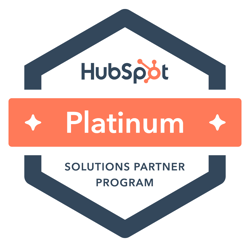 Content marketing is often viewed as a passing fad by B2B event marketers - or ignored completely - but unlike some marketing trends this one is set to stick around. As an experienced marketer, chances are you’re familiar with the fundamentals – but how can you translate the returns of this approach to your event marketing?
Content marketing is often viewed as a passing fad by B2B event marketers - or ignored completely - but unlike some marketing trends this one is set to stick around. As an experienced marketer, chances are you’re familiar with the fundamentals – but how can you translate the returns of this approach to your event marketing?
It's all about changing your mindset, and applying the key elements of the content philosophy to your outlook. Ultimately, treating your event as a content offer, rather than a standalone occurrence, will help you to adapt your strategy, generate relevant leads, and increase registrations.
Step 1 – Think of your event as a content offer
-
First, you need to change how you view your event. Approach it as you would your other content pieces, like ebooks, whitepapers or checklists. It certainly meets the criteria of an offer, it's simply one you would place further down the marketing funnel
-
As you would with any offer, use your other content as platforms upon which to market your event. Amend your existing ebooks, whitepapers etc., so that they link to your event (make sure you remove the reference once the event has come and gone). Be smart and only insert it where relevant or applicable – it should appear as a logical next step to the reader in question
Step 2 – Develop relevant, engaging calls to action (CTAs)
-
In treating your event as an offer, you will need to create effective, impactful calls to action. This means banners, buttons and email headers, which encourage the reader to click through to receive more information. The language should be action oriented, and stimulate the reader to "Find out more","Download the brochure", or "Get previous event presentations", for example
-
Next, work on creating everything that comes with a CTA – landing pages, thank you pages and follow up emails that your buyer persona will find useful
-
Make sure you use visual and text CTAs, and don't be shy when it comes to the size - you want it to be noticed and clicked
-
Don't use only event information for the text - adding copy to address a specific pain point works wonders, and shows your prospects that you truly understand
Step 3 – Create blogs around your event themes - not just the date itself
-
You don't have to just write blogs specifically about your event; address the theme, hot topics, and other industry related ideas
-
In blogs relating to your event, make reference to specific details - a speaker, a sponsor, exhibitor - and hyperlink it to your event offer
-
It might seem obvious, but whenever you publish a new post be sure to include a CTA for your event at the end - again these may need to be updated once it has taken place
-
Write features on the companies speaking at and sponsoring your conference, with a call to action inviting the reader to meet them at your event
Step 4 – Use email marketing to inform your audience, not just invite them
-
Send specific, targeted emails to your database and tailor them to your buyer persona. Much like your CTAs and blogs, you should not simply broadcast information about your B2B events, but include valuable, relevant insights that relate to your offer
-
Take the time to craft your email taking into consideration the reader, not just what you want to tell them - using traditional events/booking/conference jargon can be offputting and adds very little value. Aim to create something that's pleasing to read and educational, not just an event sales pitch
Step 5 - Expand your reach
-
Make use of your hard won media partners and use them as platforms for your content - this will increase your reach and mean that your event is exposed to potential attendees you might not otherwise have access to
-
Social media will also be invaluable for publicising your event content - don't just broadcast dates, speakers and standard event information, really engage with your audience by initiating conversation around your event topic. You have a range of tools at your disposal to help market your event, so use them wisely!
Now see what the fuss is about and try it for yourself!
Event marketing and content marketing should not be viewed as two separate entities: event marketing is simply a part of this approach. A content marketing strategy is truly the only effective way to promote your next conference. If you are experiencing declining delegate numbers, content marketing is a must, and if you're struggling to fit the pieces together, we're more than happy to help. Essentially there's no better way to promote your content based offer (your event), than with content!
If you'd like to get ahead and find out about the direction the events industry is taking, download and have a read of our ebook today.
Image Credit: John Hritz







Do you have any comments?